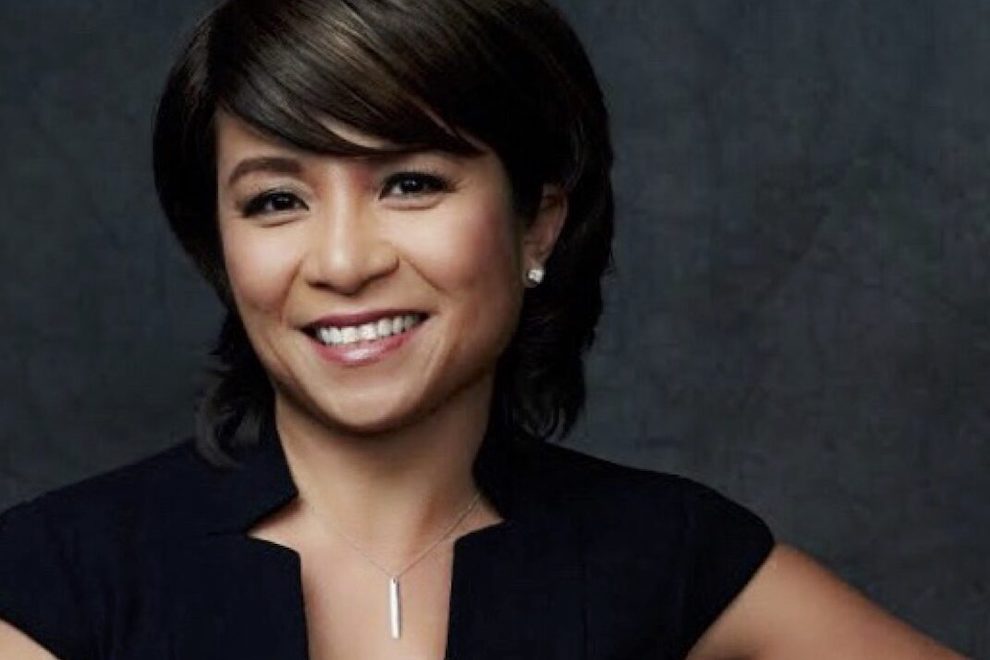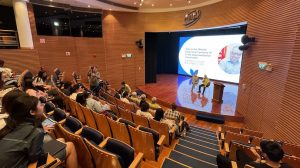Economic recovery from COVID-19 will release pent-up demand for tourism services, and see a surge in the need for skilled people in the sector, says Pacific Asia Travel Association (PATA) Chief Executive Officer Ms. Liz Ortiguera. In this interview, she advises IFTM students to be ready to grab the opportunity – even if it might mean moving to somewhere else in the region.
– You took office as chief executive of PATA last year, amid one of the biggest crises ever faced by tourism and hospitality in Asia-Pacific – and around the world – due to the negative impact of COVID-19 on the industry. Why did you decide to take on this challenge?
I took this role on for many reasons. First, the challenge: I’ve never shied away from a crisis or challenge in my career. Second, the importance: travel as a sector delivers tremendous value globally, employing 10 percent of workers across Asia-Pacific, providing a livelihood to millions of people, particularly lower-income, informal workers. The third reason I accepted the role was the opportunity: from crisis comes opportunity and innovation. It is in a crisis that consumer and global needs become most clearly defined, and you can deliver the most value.
– What role can PATA play in promoting the recovery and growth of tourism and hospitality in the Asia-Pacific region post-COVID-19?
I started in this role at the beginning of June 2021. By July, I had developed an 8-point plan to support the members, and to help the industry recover. This is really a crisis response plan and addresses various needs. Helping governments collaborate on what they have learned about economic recovery from COVID-19, and inspiring innovation and entrepreneurship among our member base, are 2 examples among the 8 elements.
‘It is in a crisis that consumer and global needs become most clearly defined, and you can deliver the most value’
– You are the first Asian-American female CEO in PATA’s 70-year history. Is it an added responsibility?
I view it as a responsibility and an opportunity. Diversity and inclusion are key values of PATA. I’m in a position to ensure that, in managing and building East-West travel relations bilaterally, we have balanced representation in all our forums.
– You are also an advocate for poverty-eradication programmes and education initiatives across the Asia-Pacific region. How can tourism and hospitality contribute to that, particularly in less well-off areas?
Yes, I feel strongly about education in various forms, to support improvement in livelihoods. First, I’ve been a supporter of a hotel and restaurant school run by a charity in Siem Reap [in Cambodia], and which provides a highly efficient model. Within 11 months, the school can train a impoverished student – predominantly they are women – to work in a 4- or 5-star hotel and have an ongoing livelihood. Programmes like this should be replicated across the region, so that tourism development doesn’t just benefit the more affluent, more advantaged students, but can lift all segments of the population.
Second, the prevalence of smartphones even in poorer communities and the development of mobile-based learning solutions is an important innovation that can democratise education, and make it accessible to all. Tourism and hospitality should embrace these tools. It’s a very economically-viable solution for these sectors to upskill staff.
Lastly, while the past 2 years have seen ongoing unemployment in the travel and tourism sector, a recovery will emerge, with pent-up consumer demand. Human resources will be in high demand in market-leading destinations. Rapid re-employment and upskilling will be critical.
Keep on learning
– With so much expected to change in the industry post-COVID-19, how can tourism and hospitality students ensure that what they are learning today will remain relevant in the future?
I’m an advocate for lifelong learning. You should stay curious, stay ambitious and be an avid learner. It will serve you well at every stage in your career. Learn from all sources: books, videos, but above all from interactions with other people. At the heart of tourism and hospitality excellence is having high emotional intelligence – great human interactions will always be valued in tourism and hospitality.
– In your opinion, what is the importance of quality education and training for Asia-Pacific’s tourism and hospitality sector?
I’ve been through very structured, traditional, academic learning institutions myself – and I enjoyed that environment. But I’ve come to understand that one should continually be learning from all different sources – in both structured and unstructured environments. Understand what method – hands-on operations, listening, viewing, etcetera – supports your mode of learning best, and be avid about widening your knowledge. Getting a degree will always help, but another important factor is to maintain a ‘growth mindset’.
‘At the heart of tourism and hospitality excellence is having high emotional intelligence’
– What advice would you give to IFTM students aiming to enter the tourism and hospitality industry?
With the emerging recovery [post-COVID-19], try to be flexible about location. Bright spots will emerge in the region – but it may involve moving into that destination. Stay humble, learn from everyone at all levels, and get hands-on. The most successful executives I know have started in the humblest jobs in the organisation. This informed their knowledge of the business, as they moved up the career ladder.









